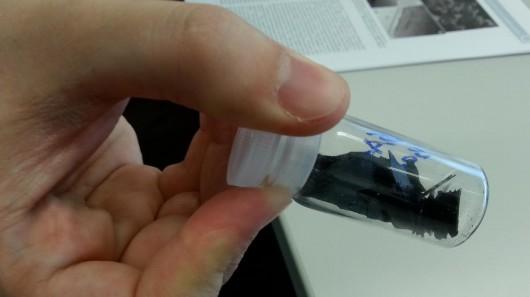The batteries inside our smartphones and laptops are fighting a losing battle when it comes to keeping these devices juiced up, but researchers from ETH Zurich have discovered a new type of glass material that could make a major difference: vanadate-borate glass. The glass can be used as an electrode material in lithium-ion batteries to almost double the amount of time they last between charges.
Scientists Semih Afyon and Reinhard Nesper are responsible for leading a the team of ETH researchers to the discovery, which has been several years in the making, and it could have a substantial impact in the way devices large and small are powered in the future.
Various challenges had to be overcome to find a material that could both store battery capacity effectively and take a frequent number of charge cycles, while staying stable enough to be viable for use in modern-day electronics.
Chief among these challenges was to harness the potential of vanadium-based compounds, which can take more charge than materials currently used in cathodes, but become unstable after a few charge/discharge cycles because of their crystalline structure. To overcome this, the researchers mixed powdered vanadium pentoxide with borate compounds to create vanadate-borate glass – a material with a high capacity and stable structure that, according to Dr Afyon, is also simple and inexpensive to manufacture.
For more detail: A new type of glass could double your smartphone’s battery life

